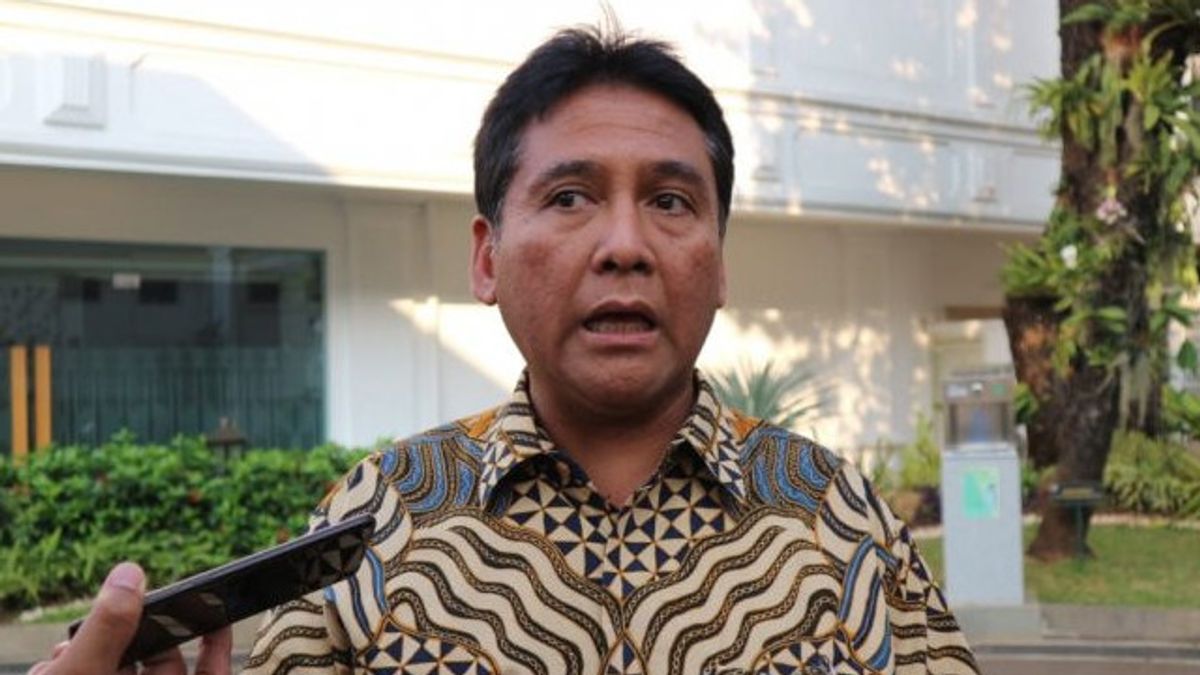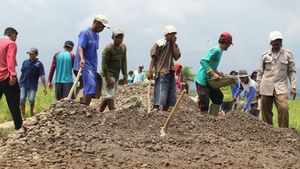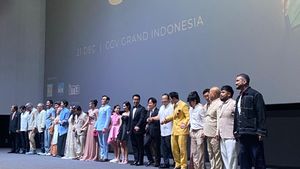JAKARTA - Chairman of the Indonesian Employers' Association (Apindo) Hariyadi Sukamdani regrets that the high investment achievement is not in line with the absorption of existing workers.
"I always say back and forth, is our economic growth of quality? I don't think so. Why? Economic growth is high, the investment is high but cannot provide great job opportunities for its people," he said at the launch of the Apindo Business & Industry Learning Center (ABILEC) which was monitored online in Jakarta, quoted from Antara, Tuesday, February 14.
Citing data from the Central Statistics Agency (BPS), economic growth in 2022 reached 5.31 percent. This growth is much higher than the pre-pandemic achievement, which is an average of 5 percent and is the highest achievement since 2014.
In terms of investment, the Ministry of Investment/Investment Coordinating Agency (BKPM) noted that investment realization throughout 2022 reached IDR 1,207.2 trillion, growing 34 percent compared to 2021's achievement of IDR 901.02 trillion.
Despite its brilliant growth, the absorption of labor from investment realization in 2022 was recorded at only 1.3 million people.
"Investasi 2022 Rp1,207 triliun. Itu naiknya luar biasa tetapi yang kita kehatinya, penyerapannya hanya 1,3 juta orang. Artinya Rp1 triliun menghasilkan (field pekerja bagi) hanya 1,081 orang. Dibandingkan 9 tahun yang lalu, tahun 2013 pada waktu investasi kita hanya Rp398 triliun, menciptakan 1,8 juta lapangan kerja atau Rp1 triliun rasinya hampir 4,600 orang," katanya.
Hariyadi assessed that this condition reflects the occurrence of a capital-intensive industry pattern.
According to him, the direction of future industrial sector policies must be changed so that the demographic bonus that has been mentioned so far is not in vain.
On the other hand, other homework (PR) that must be faced is the high number of workers with low education.
"The 58 percent workforce only graduated from junior high school to lower school. This is our homework together," he said.
On the same occasion, Expert Staff of the Minister for Digital Transformation, Creativity and Human Resources of the Coordinating Ministry for Economic Affairs Rizal Edwin acknowledged that the dominance of low-skill workers with a lower junior high school education background in the national workforce is one of the challenges in improving the quality of human resources in Indonesia.
In fact, improving the quality and competitiveness of human resources is one of the crucial factors in encouraging economic transformation. Even the 2020-2024 RPJMN places human resources as the main capital to lead to inclusive and equitable development throughout Indonesia.
"Efforts to improve the quality of human resources are not an easy thing. There are still a number of challenges, as previously said, namely the dominance of low-skill workers with a lower junior high school education background in our national workforce," he said.
Edwin also highlighted that there are still skills between graduates of educational institutions and labor needs by industry.
"Also the challenges of automation and digitization that have the potential to remove many job positions," said Edwin.
The English, Chinese, Japanese, Arabic, and French versions are automatically generated by the AI. So there may still be inaccuracies in translating, please always see Indonesian as our main language. (system supported by DigitalSiber.id)












